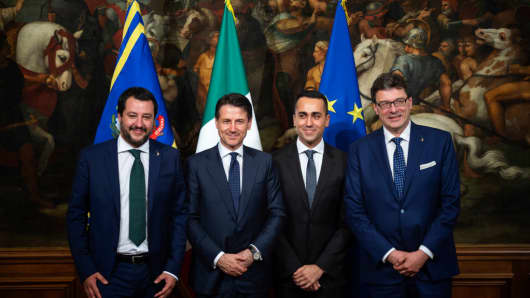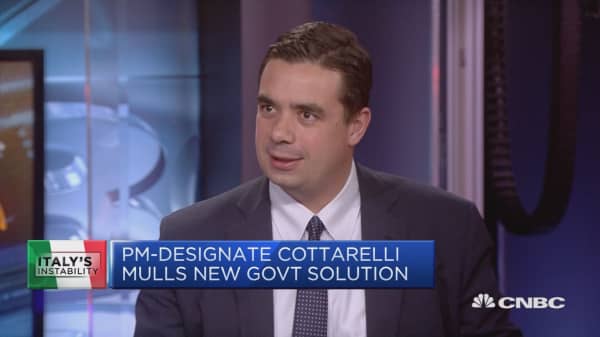The creation of a new Italian government proved to be a long, uncertain and publicly painful process for all involved.
But after almost three months, Lega and Five-Star Movement (M5S) formally joined forces last week, with a hybrid cabinet consisting of some rather odd political bedfellows, drawn from across the ideological and professional spectrum.
These individuals must now embrace an equally disparate set of challenges that may require rather contradictory, or at least competing, solutions.
The two parties share a well-publicized distrust of Brussels, but their separate agendas highlighted in their governing contract show that both are willing to push policies that will place greater strain on Italian state finances. This could have serious implications not only for ties with Europe, but also for the long-term stability of the partnership.
Lega leader Matteo Salvini recently quipped to reporters that he expected the new government to last for a decade. But as the latest popular polls showed his party closing in on M5S, investors may well ask if the coalition can possibly last if Salvini does not swiftly fulfil his major campaign promises.
Those include the introduction of a flat tax — originally planned at 15 percent, but now likely to be a two-tier system that ranges from 15 and 20 percent — as well as a wide-scale deportation of more than half a million undocumented migrants.





